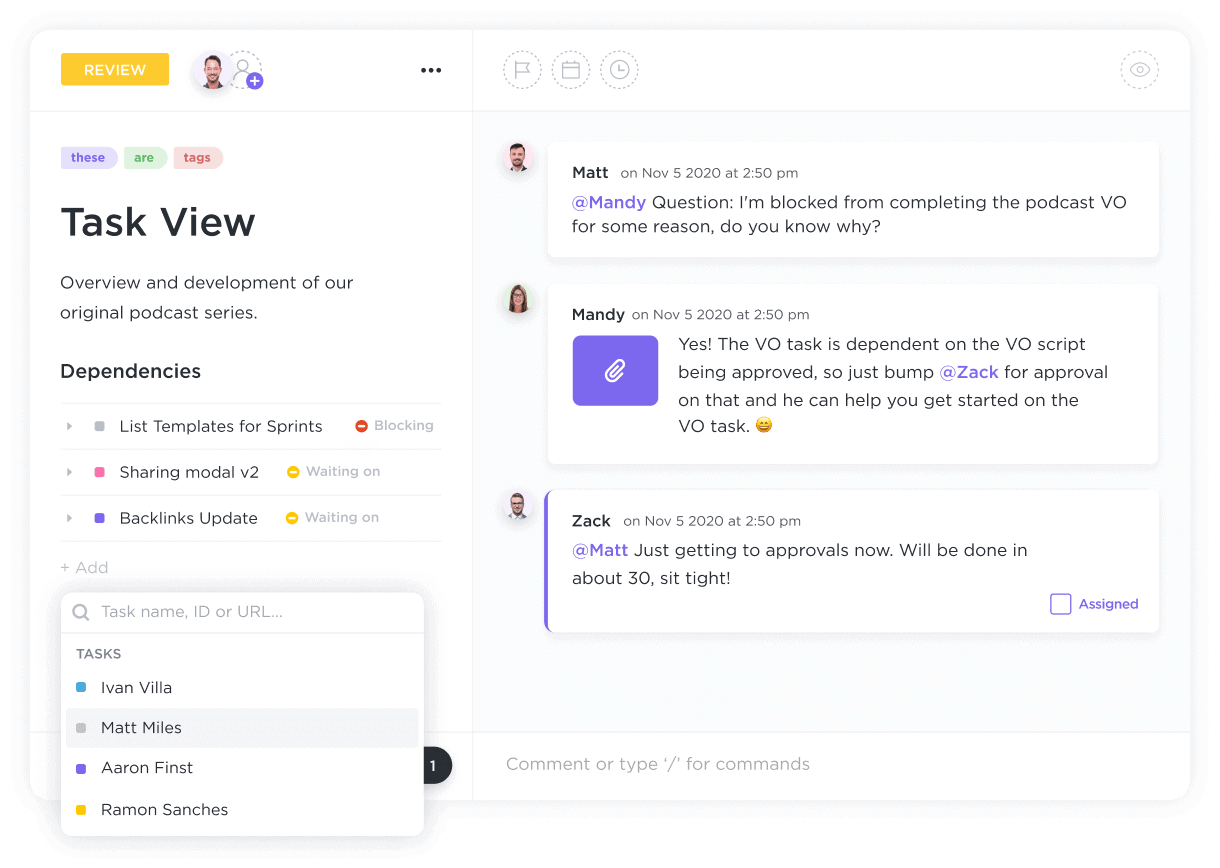Multiple Lists
Get greater visibility across projects.
Never lose sight of a task that spans several projects or is used by multiple people. Include the task in multiple Lists so it can be referenced anywhere.

Gantt Charts
Organize your research, experiments, and fieldwork seamlessly with ClickUp - the ultimate task management software for Environmental Scientists. Stay on top of data collection, analysis, and reporting with powerful features designed to streamline your workflow and boost productivity. Try ClickUp today and see how it can transform the way you manage your projects and tasks in the field of environmental science.
Free forever. No credit card.
Multiple Lists
Never lose sight of a task that spans several projects or is used by multiple people. Include the task in multiple Lists so it can be referenced anywhere.

Relationships & Dependencies
Add relationships to tasks to easily jump to related work. Create dependencies to establish a clear order of operations among tasks.

Task management software can assist environmental scientists by organizing research tasks, setting deadlines, prioritizing assignments, and tracking progress, leading to more efficient data collection and analysis processes.
Task management software offers features that enable environmental scientists to efficiently track and manage fieldwork tasks, such as creating task lists, setting deadlines, assigning tasks to team members, attaching relevant documents or notes, and providing status updates on progress.
Yes, task management software facilitates collaboration among environmental scientists by enabling real-time sharing of project updates, assigning tasks, tracking progress, setting deadlines, and centralizing communication for enhanced teamwork efficiency.